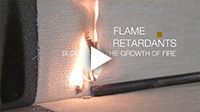

How does VECAP work?
The mechanism of VECAP in brief
- Commit to the VECAP Code of Good Practice
- Perform a self-assessment and compile a mass balance
- Develop baseline surveys to ensure progress is measurable
- Create and implement a product handling improvement plan
- Use third-party certification
The VECAP Process
VECAP is user-friendly and can be implemented by companies of any size. The process is structured to support the principle of continuous improvement, following a 6-step cycle, supervised by a Product Steward:
-
COMMITMENT TO THE VECAP CODE OF GOOD PRACTICE (CoGP)
The user industry or plant commits to the programme, adopting the Industry’s Code of Good Practice and integrating its principles into their work procedures and daily operations. As an annex to the Code, the user also receives the Best Available Technique (BAT) document, a guide for emptying packaging and containers. - SELF AUDIT
The company reviews and validates the production flow sheet of its operations. - MASS BALANCE APPROACH
The company completes the product’s mass balance. -
BASELINE EMISSIONS SURVEY
The company carries out a baseline survey to measure current performance and to establish priorities for improvement. -
EMISSIONS IMPROVEMENT PLAN
The company produces an emission improvement plan in line with its objectives and policies. -
IMPLEMENTATION AND CONTINUOUS IMPROVEMENT
The improvement plan is then implemented, operational results are evaluated and potential for further emission reductions investigated, thereby ensuring a process for continuous improvement.

The VECAP process is accomplished via company visits, training and distribution of a wide range of documents that have been developed and are available in several languages (Codes of Good Practice, specific BAT documents, process flow charts, a dedicated website, etc)
Through annual monitoring and evaluation of progress, additional emission sources are incorporated when identified.
In addition, VECAP is currently implementing an external certification scheme. During the first phase of VECAP implementation, data were collected directly from users on a voluntary basis. This information was then processed by the VECAP Product Steward to ensure confidentiality and compliance with competition legislation. However the scope of VECAP has now expanded to the point where independent certification is necessary. A scheme has been developed based on ISO9001/14001 principles, with audits carried out by independent auditors. The organisation of the auditing process and delivery of the VECAP Certificate will be done by specialised certification bodies such as Bureau Veritas to guarantee maximum independence. Pilot trials of the certification scheme are in progress.

-
"Had VECAP been a regulatory measure, with overall UK emission reductions of 75% in its first year, it would have been hailed as a major success. That it was achieved as an industry voluntary commitment means that this level of environmental protection was attained far faster and with great savings. We look forward to the next year's developments."England and Wales Environment Agency









